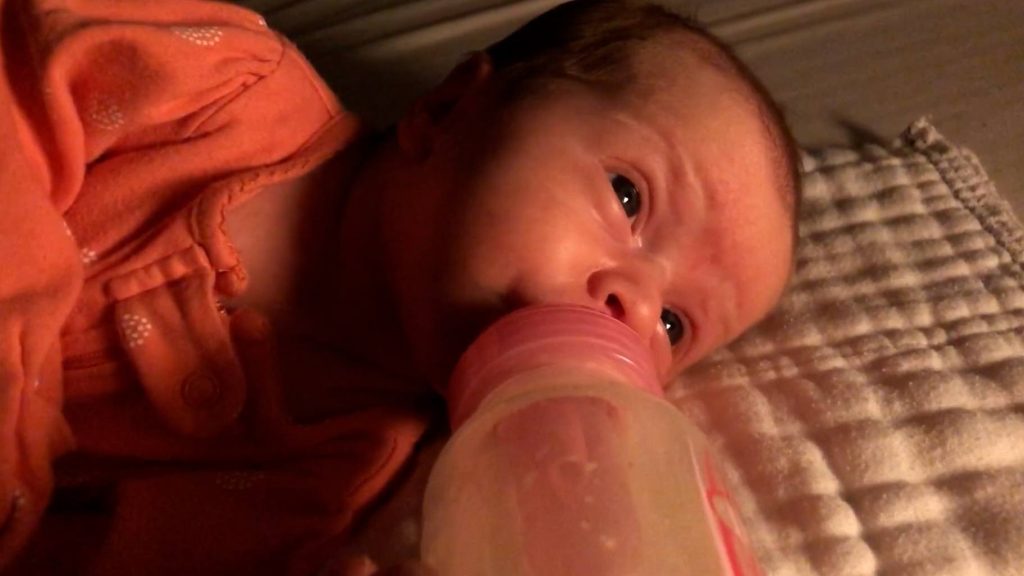
Infant caregivers are finding empty store shelves where baby formula was once stocked. They may be turning to online searches and even alternative solutions, such as making homemade baby formula.
While it may sound like a good idea, Dr. Kelsey Klaas, a Mayo Clinic pediatrician, says feeding your baby homemade formula is not safe for multiple reasons.
Watch: Mayo Clinic expert offers advice during baby formula shortage.
Journalists: Broadcast-quality video is available in the downloads at the end of the post. Please courtesy: Mayo Clinic News Network Name super/CG: Kelsey Klaas, M.D./ Pediatric and Adolescent Medicine/Mayo Clinic.
"In the short term, one of the potentially severe risks of a homemade formula is that we can see electrolyte imbalances — calcium, sodium and several others — that can lead to potentially scary events. The most severe kind of seizures can lead to dehydration in the shorter term, as well. So although it sounds like it might be a good idea, it's really a potentially dangerous option, especially for young infants," says Dr. Klaas.
Diluting existing formula or watering it down to try to make it last longer is also not a good option.
"We're not feeding our babies the same number of calories, and, so, even in the short term, they're not getting enough nutrition from that product. On top of that, with dilution, again, we face electrolyte imbalance challenges, seeing low calcium, low sodium levels as potentially severe side effects of a formula dilution."
So what can parents do? Dr. Klaas says it's OK to feed most healthy babies without special medical concerns formula that is available on the shelves, even if it's not the usual kind they use.
"When you're changing nutrition, you might see your baby be more gassy, see some change in stool patterns potentially. If you're seeing vomiting, if you're seeing diarrhea, that's the time to reach out to your pediatrician. That's not an expected response to just a formula change. If it is a little bit more fussiness, gassiness, then that is something that we would recommend just feeding through and knowing that that nutrition is what baby needs."
Parents of infants with kidney disease, significant prematurity or metabolic disorders that require them to be fed a special formula should get in touch with their baby's health care team.
"There is a form that physician offices can complete and send to Abbott Nutrition for emergency access of special formulas. That's not all infant formulas. Again, this is going to be infants who are receiving metabolic formulas and special formulas for chronic conditions."
Here's more advice for caregivers looking for baby formula:
- When shopping for formula, make frequent trips to the store, as many stores get shipments multiple times per week or even daily.
- Call around before you drive around. Some stores may hold a few cans of formula for you if you are coming right away to pick it up.
- When you are at the store, ask customer service if formula is in a different location than the regular shelf.
- Check grocery stores in small outlying towns, as well.
- Try shopping online. Stores may have different formula online than what they have on the shelves.
- Refer patients to their local public health or county Woman, Infants and Children office for additional information.
____________________________________________
For the safety of its patients, staff and visitors, Mayo Clinic has strict masking policies in place. Anyone shown without a mask was either recorded prior to COVID-19 or recorded in a nonpatient care area where social distancing and other safety protocols were followed.
Related Articles







